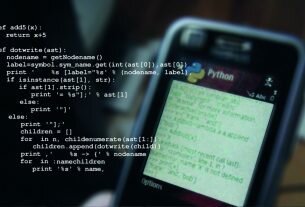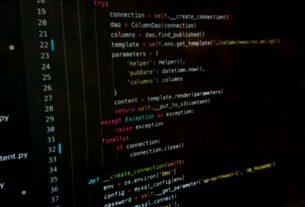Question or problem about Python programming:
I’m trying to run a macro via python but I’m not sure how to get it working…
I’ve got the following code so far, but it’s not working.
import win32com.client
xl=win32com.client.Dispatch("Excel.Application")
xl.Workbooks.Open(Filename="C:\test.xlsm",ReadOnly=1)
xl.Application.Run("macrohere")
xl.Workbooks(1).Close(SaveChanges=0)
xl.Application.Quit()
xl=0
I get the following traceback:
Traceback (most recent call last):
File "C:\test.py", line 4, in
xl.Application.Run("macrohere")
File ">", line 14, in Run
File "C:\Python27\lib\site-packages\win32com\client\dynamic.py", line 282, in _ApplyTypes_
result = self._oleobj_.InvokeTypes(*(dispid, LCID, wFlags, retType, argTypes) + args)
com_error: (-2147352567, 'Exception occurred.', (0, u'Microsoft Excel', u"Cannot run the macro 'macrohere'. The macro may not be available in this workbook or all macros may be disabled.", u'xlmain11.chm', 0, -2146827284), None)
import win32com.client
xl=win32com.client.Dispatch("Excel.Application")
xl.Workbooks.Open(Filename="C:\test.xlsm",ReadOnly=1)
try:
xl.Application.Run("test.xlsm!testmacro.testmacro")
# It does run like this... but we get the following error:
# Traceback (most recent call last):
# File "C:\test.py", line 7, in
# xl.Workbooks(1).Close(SaveChanges=0)
# File "C:\Python27\lib\site-packages\win32com\client\dynamic.py", line 192, in __call__
# return self._get_good_object_(self._oleobj_.Invoke(*allArgs),self._olerepr_.defaultDispatchName,None)
# com_error: (-2147352567, 'Exception occurred.', (0, None, None, None, 0, -2147352565), None)
except:
# Except isn't catching the above error... :(
xl.Workbooks(1).Close(SaveChanges=0)
xl.Application.Quit()
xl=0
How to solve the problem:
Solution 1:
I would expect the error is to do with the macro you’re calling, try the following bit of code:
Code
import os, os.path
import win32com.client
if os.path.exists("excelsheet.xlsm"):
xl=win32com.client.Dispatch("Excel.Application")
xl.Workbooks.Open(os.path.abspath("excelsheet.xlsm"), ReadOnly=1)
xl.Application.Run("excelsheet.xlsm!modulename.macroname")
## xl.Application.Save() # if you want to save then uncomment this line and change delete the ", ReadOnly=1" part from the open function.
xl.Application.Quit() # Comment this out if your excel script closes
del xl
Solution 2:
I did some modification to the SMNALLY’s code so it can run in Python 3.5.2. This is my result:
#Import the following library to make use of the DispatchEx to run the macro
import win32com.client as wincl
def runMacro():
if os.path.exists("C:\\Users\\Dev\\Desktop\\Development\\completed_apps\\My_Macr_Generates_Data.xlsm"):
# DispatchEx is required in the newest versions of Python.
excel_macro = wincl.DispatchEx("Excel.application")
excel_path = os.path.expanduser("C:\\Users\\Dev\\Desktop\\Development\\completed_apps\\My_Macr_Generates_Data.xlsm")
workbook = excel_macro.Workbooks.Open(Filename = excel_path, ReadOnly =1)
excel_macro.Application.Run\
("ThisWorkbook.Template2G")
#Save the results in case you have generated data
workbook.Save()
excel_macro.Application.Quit()
del excel_macro
Solution 3:
I suspect you haven’t authorize your Excel installation to run macro from an automated Excel. It is a security protection by default at installation. To change this:
- File > Options > Trust Center
- Click on Trust Center Settings… button
- Macro Settings > Check Enable all macros
Solution 4:
Just a quick note with a xlsm with spaces.
file = 'file with spaces.xlsm'
excel_macro.Application.Run('\'' + file + '\'' + "!Module1.Macro1")
Solution 5:
Hmm i was having some trouble with that part (yes still xD):
xl.Application.Run("excelsheet.xlsm!macroname.macroname")
cos im not using excel often (same with vb or macros, but i need it to use femap with python) so i finaly resolved it checking macro list:
Developer -> Macros:
there i saw that: this macroname.macroname should be sheet_name.macroname like in “Macros” list.
(i spend something like 30min-1h trying to solve it, so it may be helpful for noobs like me in excel) xD
Solution 6:
I tried the win32com way and xlwings way but I didn’t get any luck. I use PyCharm and didn’t see the .WorkBook option in the autocompletion for win32com.
I got the -2147352567 error when I tried to pass a workbook as variable.
Then, I found a work around using vba shell to run my Python script.
Write something on the XLS file you are working with when everything is done. So that Excel knows that it’s time to run the VBA macro.
But the vba Application.wait function will take up 100% cpu which is wierd. Some people said that using the windows Sleep function would fix it.
Import xlsxwriter Shell "C:\xxxxx\python.exe C:/Users/xxxxx/pythonscript.py" exitLoop = 0
wait for Python to finish its work.
Do
waitTime = TimeSerial(Hour(Now), Minute(Now), Second(Now) + 30)
Application.Wait waitTime
Set wb2 = Workbooks.Open("D:\xxxxx.xlsx", ReadOnly:=True)
exitLoop = wb2.Worksheets("blablabla").Cells(50, 1)
wb2.Close exitLoop
Loop While exitLoop <> 1
Call VbaScript
Solution 7:
A variation on SMNALLY’s code that doesn’t quit Excel if you already have it open:
import os, os.path
import win32com.client
if os.path.exists("excelsheet.xlsm"):
xl=win32com.client.Dispatch("Excel.Application")
wb = xl.Workbooks.Open(os.path.abspath("excelsheet.xlsm"), ReadOnly=1) #create a workbook object
xl.Application.Run("excelsheet.xlsm!modulename.macroname")
wb.Close(False) #close the work sheet object rather than quitting excel
del wb
del xl
Solution 8:
For Python 3.7 or later,(2018-10-10), I have to combine both @Alejandro BR and SMNALLY’s answer, coz @Alejandro forget to define wincl.
import os, os.path
import win32com.client
if os.path.exists('C:/Users/jz/Desktop/test.xlsm'):
excel_macro = win32com.client.DispatchEx("Excel.Application") # DispatchEx is required in the newest versions of Python.
excel_path = os.path.expanduser('C:/Users/jz/Desktop/test.xlsm')
workbook = excel_macro.Workbooks.Open(Filename = excel_path, ReadOnly =1)
excel_macro.Application.Run("test.xlsm!Module1.Macro1") # update Module1 with your module, Macro1 with your macro
workbook.Save()
excel_macro.Application.Quit()
del excel_macro



